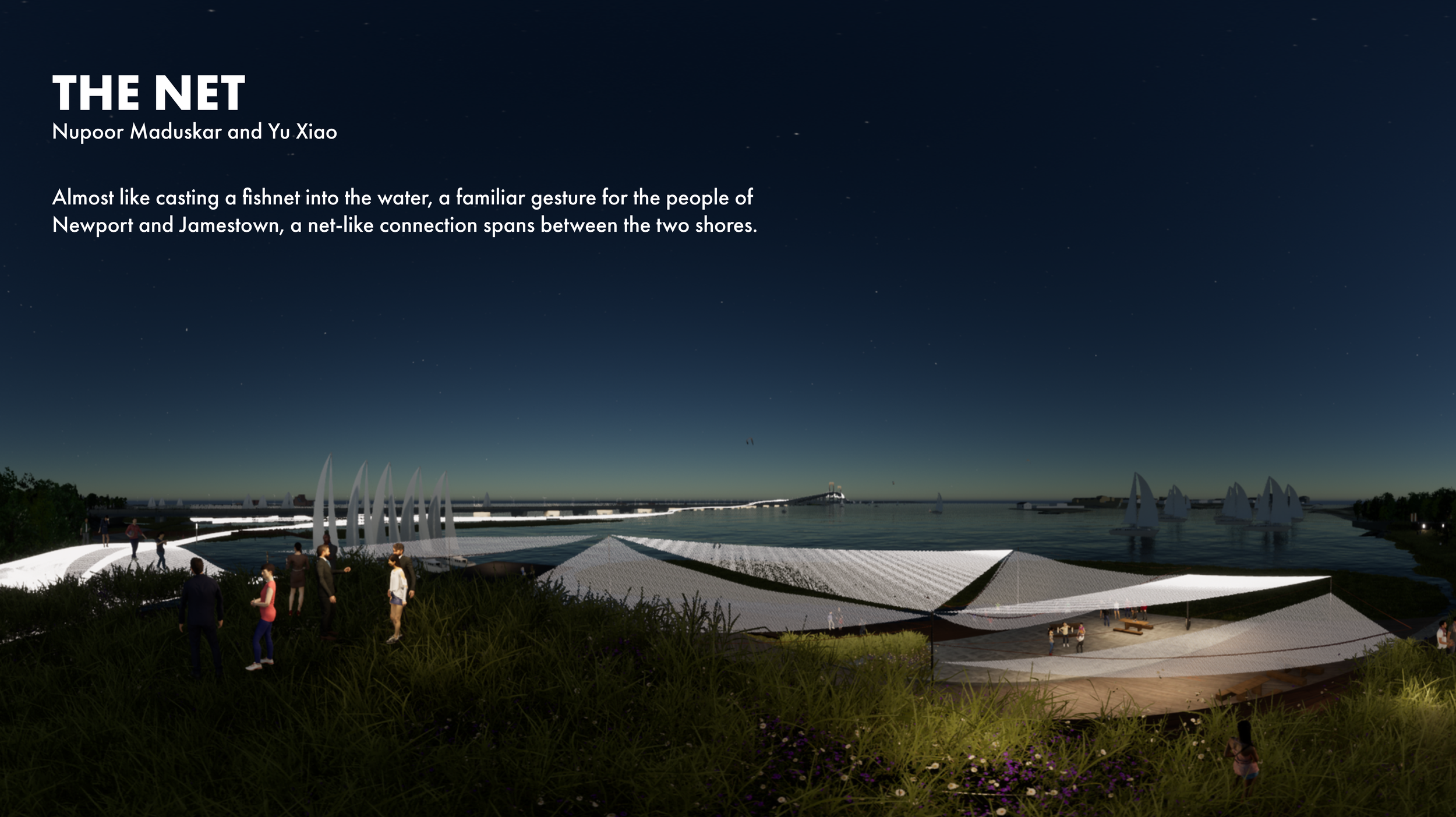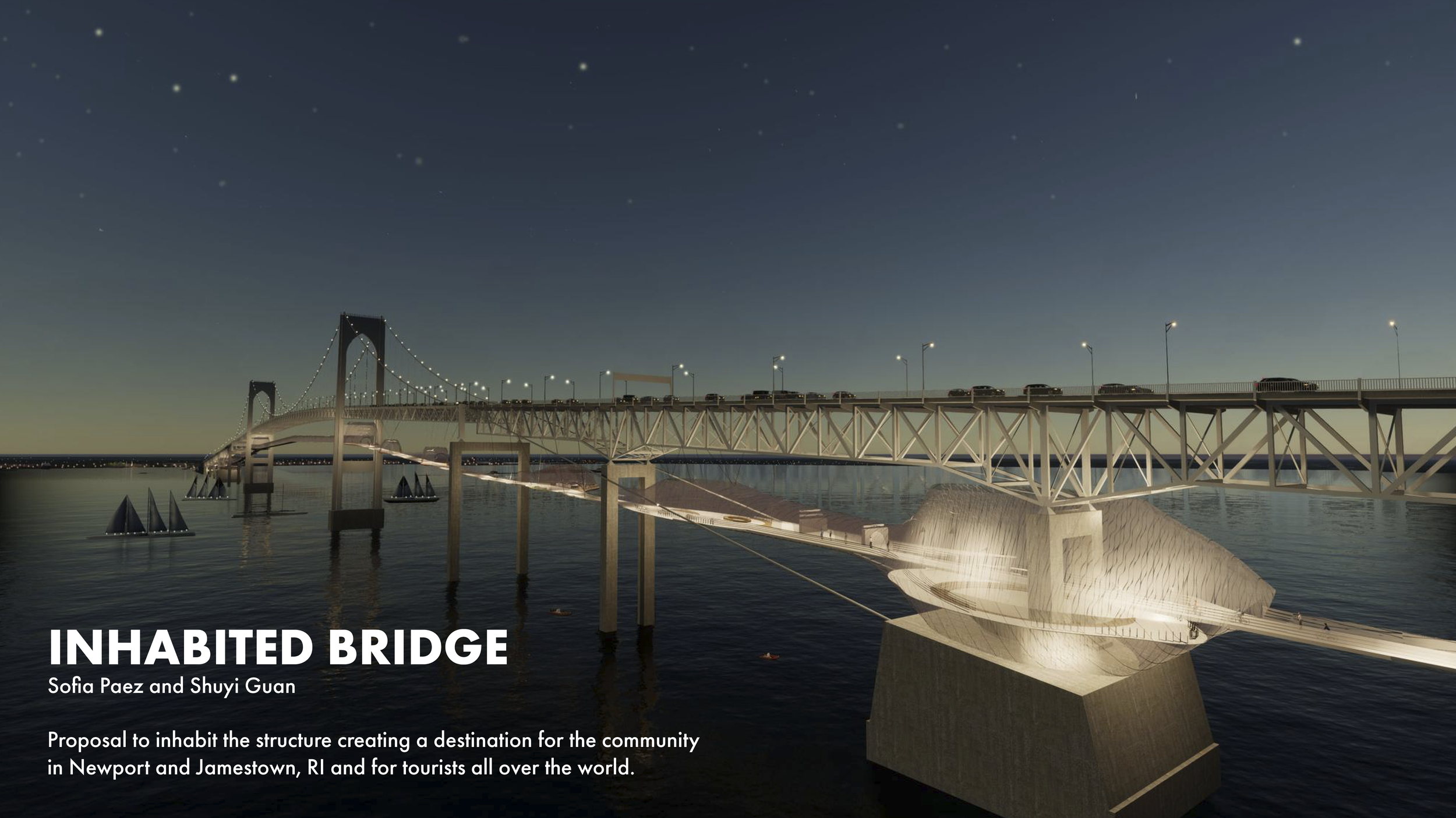Crossing the Pell
Year : 2022
Role : Collaborator (in studio course)
Tools : Meta Quest 2, iPad, Unity, Adobe Photoshop, Adobe Illustrator, Blync sensors
Skills : Exhibition design, Augmented and Virtual Reality (AR/VR) Experience Design
Instructors : Liliane Wong, Michael Grugl
An immersive AR/VR exhibit simulating the experience of walking and biking through Newport, RI’s Pell Bridge.
Made possible by the work of Rhode Island School of Design (RISD) Interior Architecture students and faculty through a partnership with Bike Newport, Crossing the Pell is a mixed reality exhibit offering the opportunity to traverse the iconic Claiborne Pell Bridge on foot or on bicycle through four futuristic designs.
Given the recent securing of federal infrastructures fund of 82.5 million dollars to refurbish the Claiborne Pell bridge in Newport, this focus on the future of the bridge is a timely opportunity for meaningful community engagement, imagination and feedback.
CONTEXTThe projects - Conductivity, The Net, Inhabited Bridge and All the World’s a Stage - were first developed in 2021 during the Crossing the Pell RISD Interior Architecture studio. Graduate students in Interior Architecture and Landscape Architecture formed cross-disciplinary teams and envisioned projects adding a suspended lower level to the bridge that would allow for pedestrians and cyclists as well as arts venues, parks, cafes and even a floating fish market.
Hosted at the historic Old Colony House in Newport, more than 450 participants, ages 3 to 93, were transported inside these inspiring visions, where they virtually walked and pedaled 2.1 miles across the Pell Bridge, the longest suspension bridge in New England. Such immersive 3D experiences are offered to allow everyone to partake in future-oriented discourse on questions such as: How can we creatively adapt our infrastructure for a more sustainable and inclusive future? How can we rethink mobility while supporting healthy activities such as cycling and walking?
PROJECTGraphic Design
Poster
Sequencing Interfaces for VR
VR Transition Screens for the displayed projects
Feedback Walls
Spatial Design + Layout
Graphics printed on carpet to safeguard stationary VR pano tour


Zones based on experiences
VR Bike
AR Table
VR Pano Tour
Feedback Panels
AR experience of architectural proposals on iPad
Sitting atop on tables, this 40 ft long infographic comprises of 4 graphic panels on the history of the Pell Bridge along with the design proposals. A portion of the panel serves as an Augmented Reality (AR) marker. Visitors can load up the 4 projects on different iPad screens enabling them to see animated models of the bridge come to life. The entire experience pops up on the iPad overlaid by tracking the graphic prints panel.

![[2/4] Graphic Panels. Image marker activates AR experience on iPad](https://images.squarespace-cdn.com/content/v1/634366878de2135acc49765a/6491a8e6-8c44-45a3-b98b-0d9f389c6979/Screenshot+2023-03-31+at+12.24.19+PM.png)
[2/4] Graphic Panels. Image marker activates AR experience on iPad
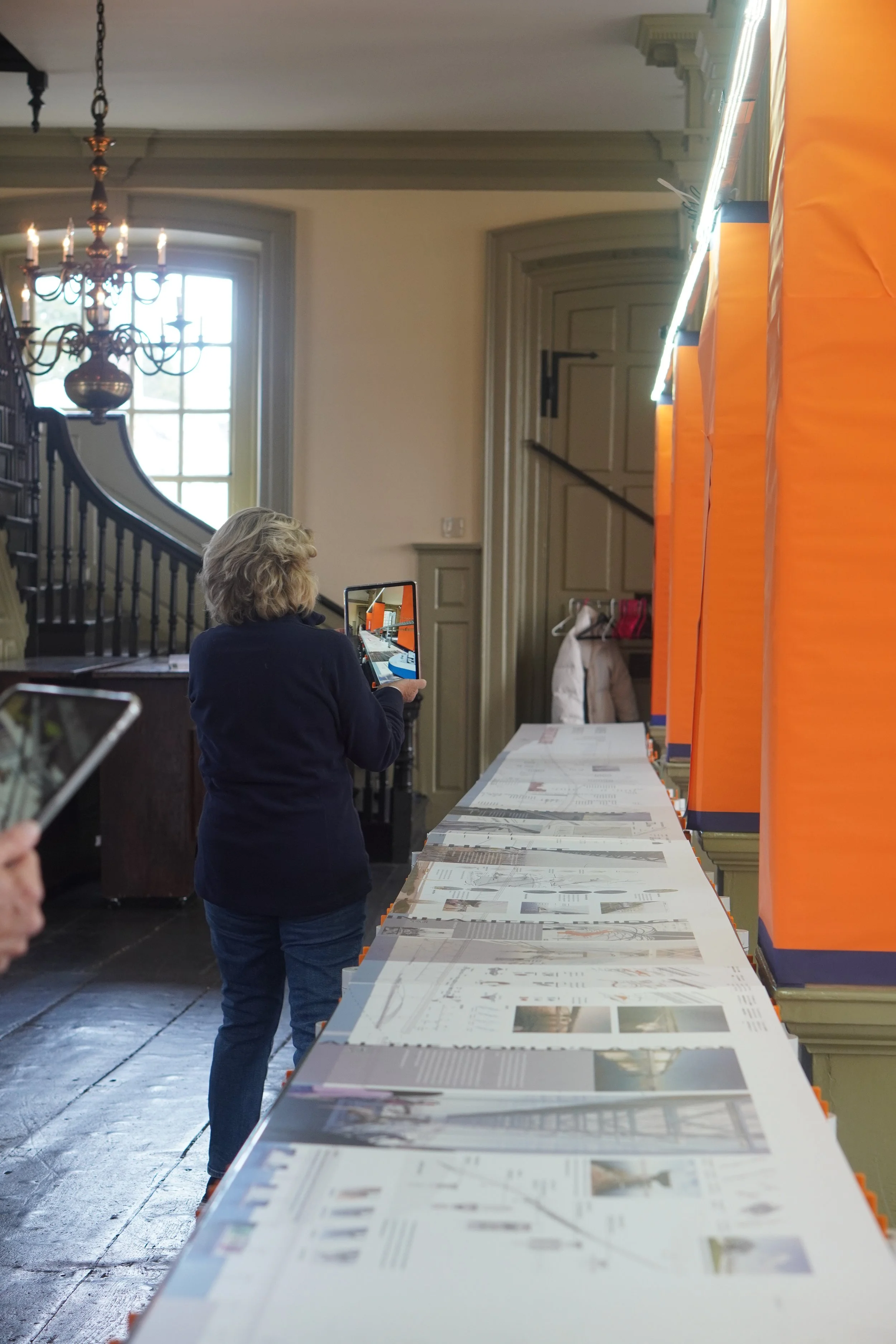

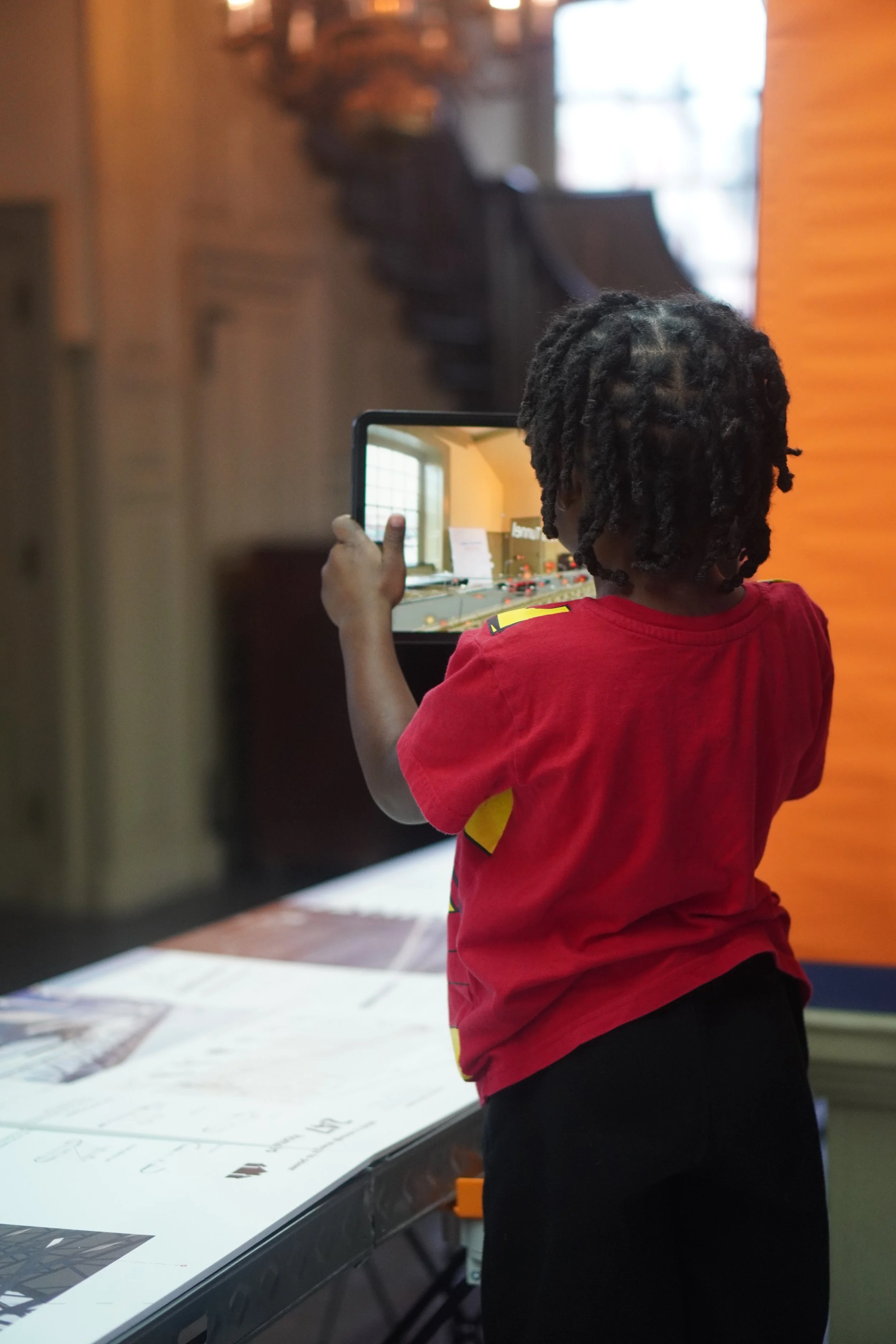
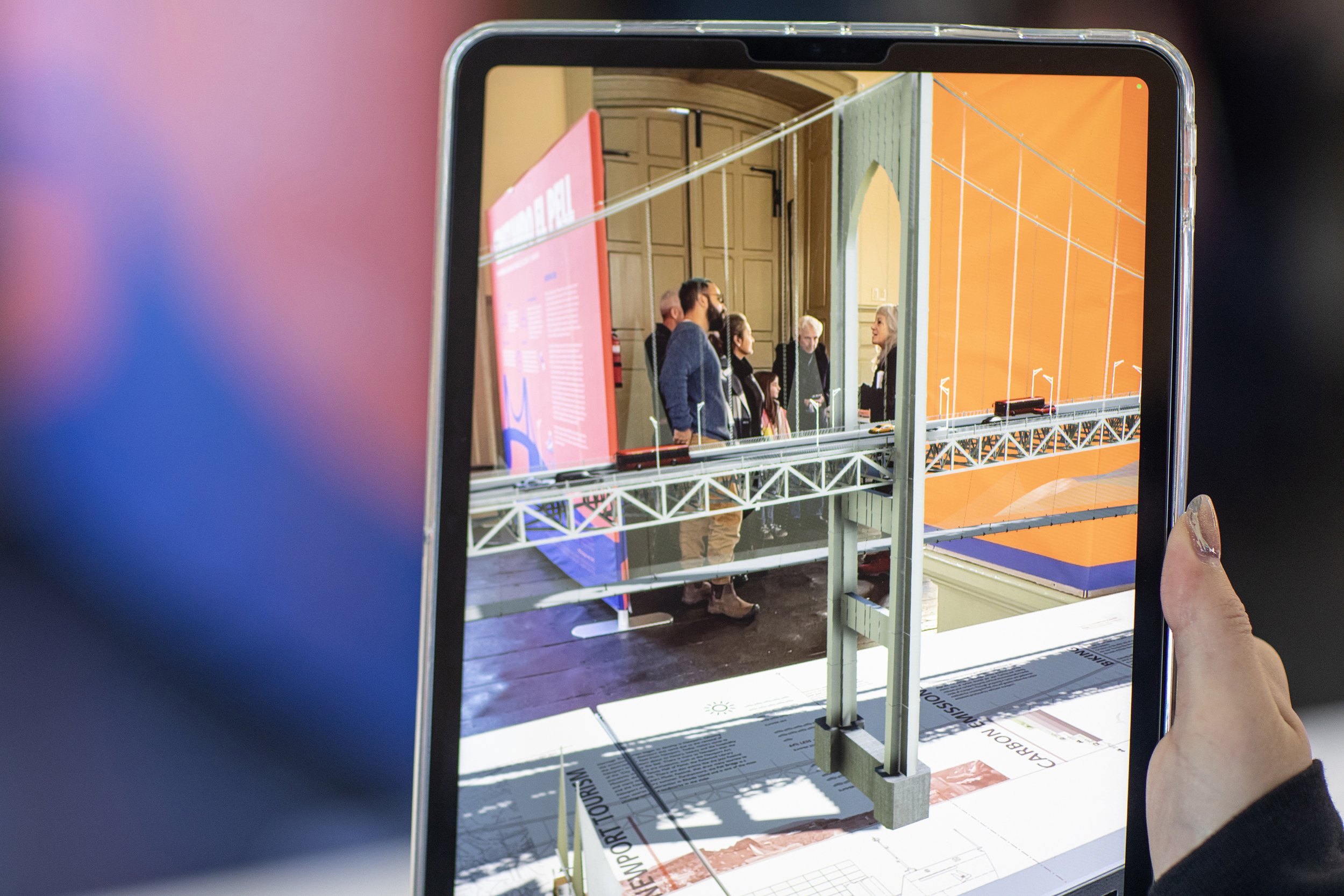
VR Pano tour
An interactive 360 degree audiovisual tour takes the viewer through the projects. 4 circular carpets ensured safety of visitors wearing Virtual Reality (VR) headsets by creating a distinguished pano tour space within the exhibition. Using simple interactions like pointing and selecting to travel or view a different portion of the experience, a visitor could intuitively control and advance within this immersive walkthrough.
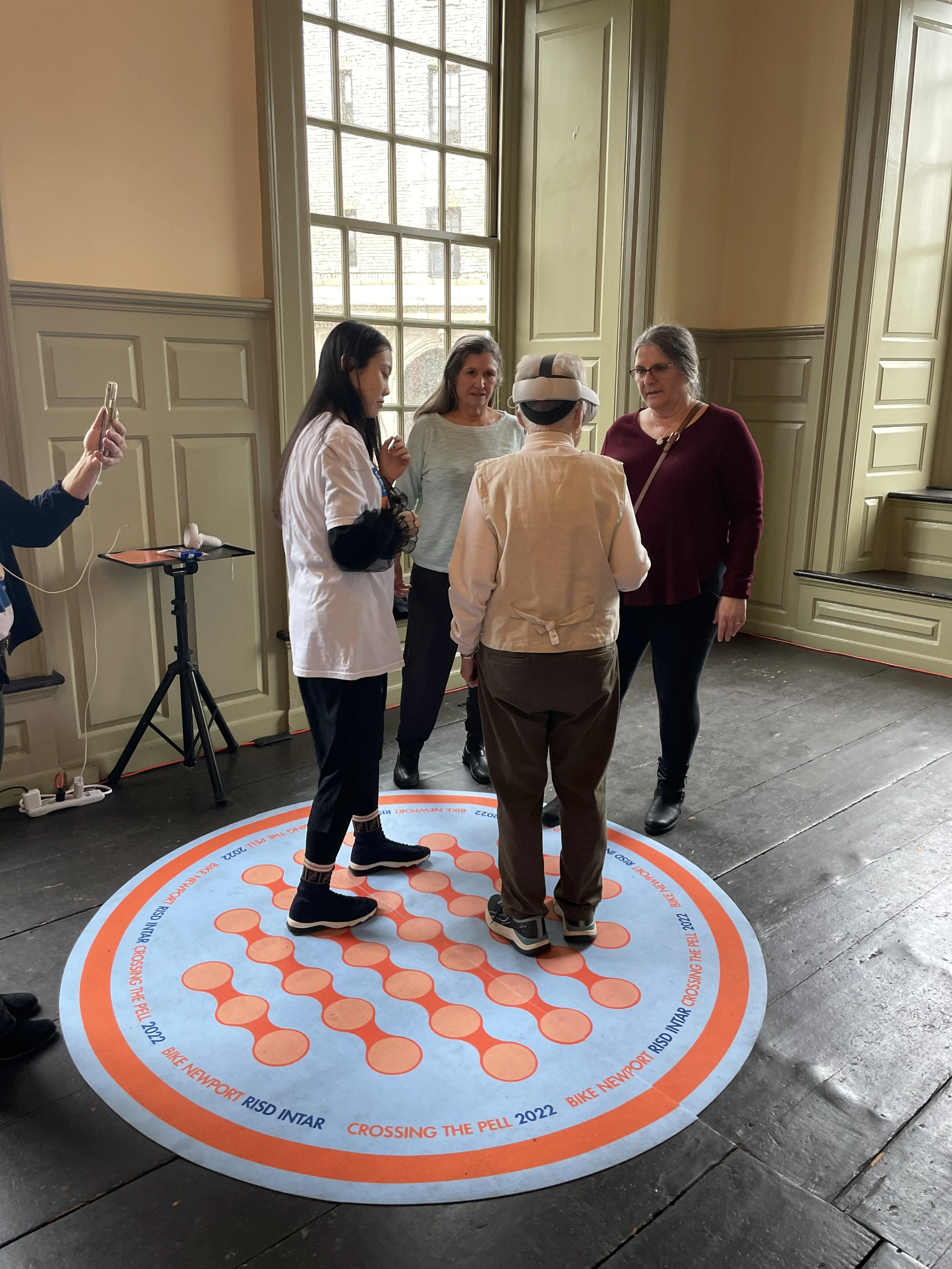

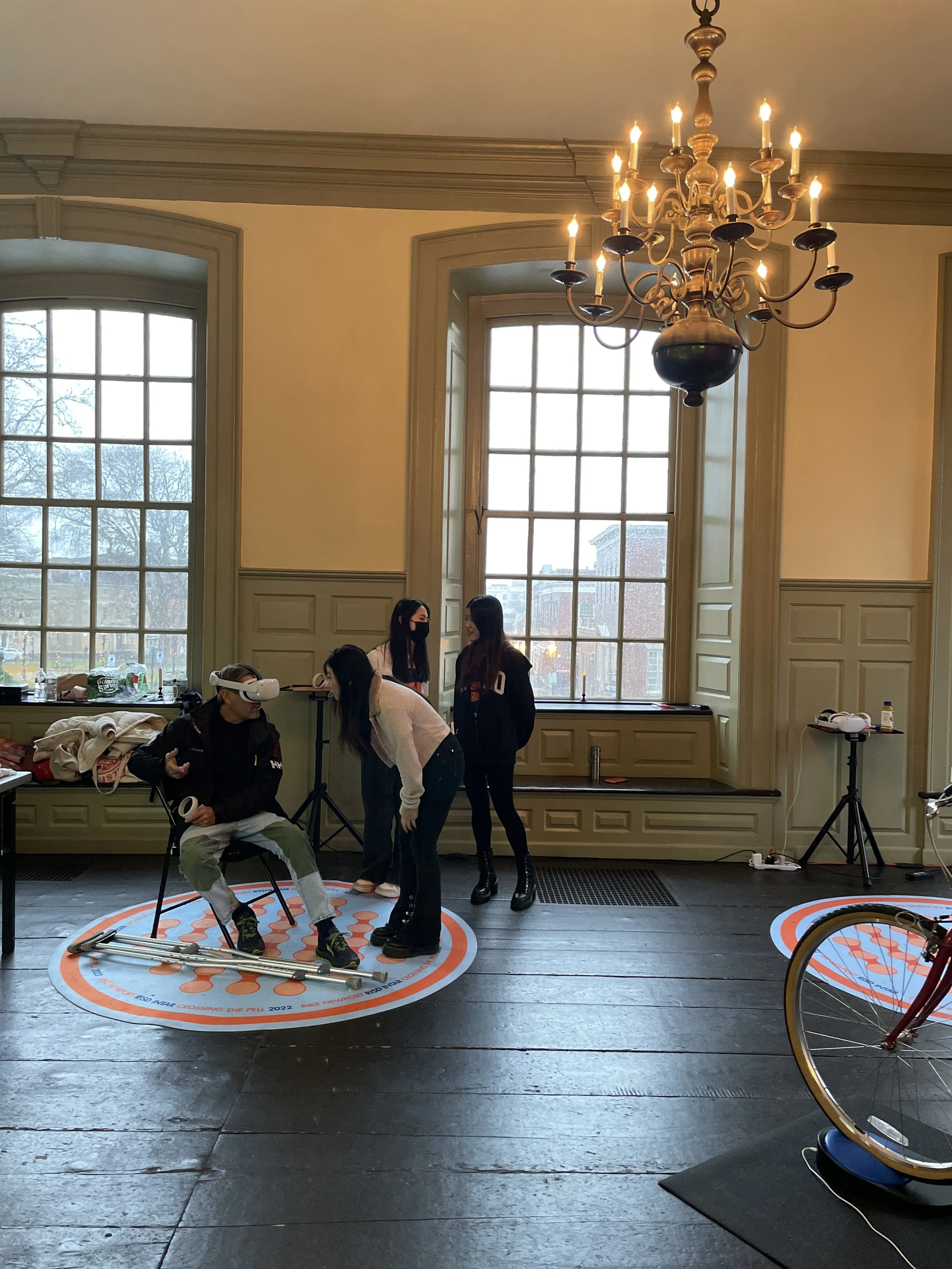
VR Cycling tour
This section contains several bicycles and a tricycle. The zone allows for real time responsive + immersive cycling with a virtual reality headset on. A motion sensor tracks the speed and direction simulating the cycle ride through the design interventions on Pell Bridge. A tutorial, menu, transitions screen and supports for the cycles were created as part of the exhibit.

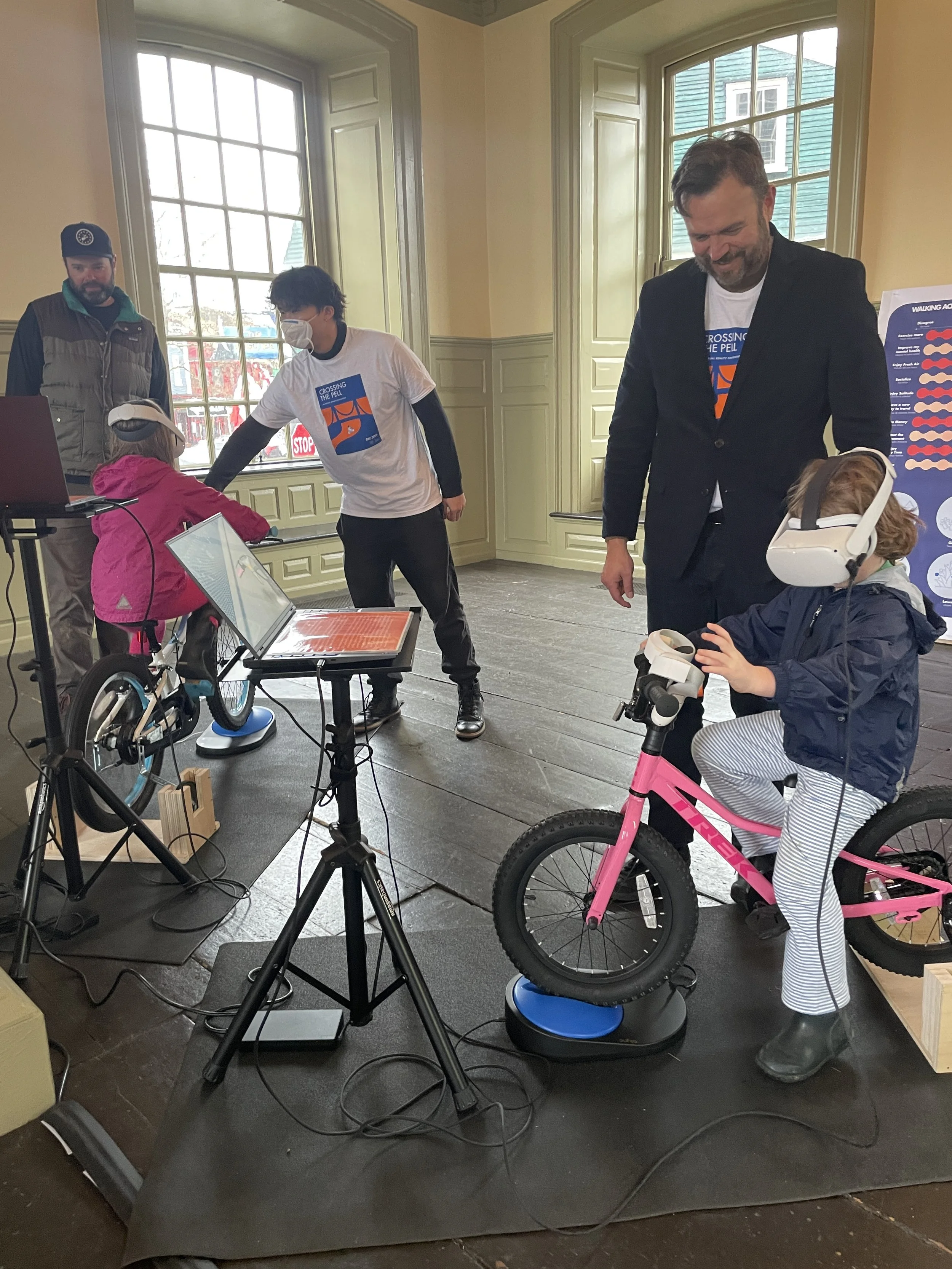


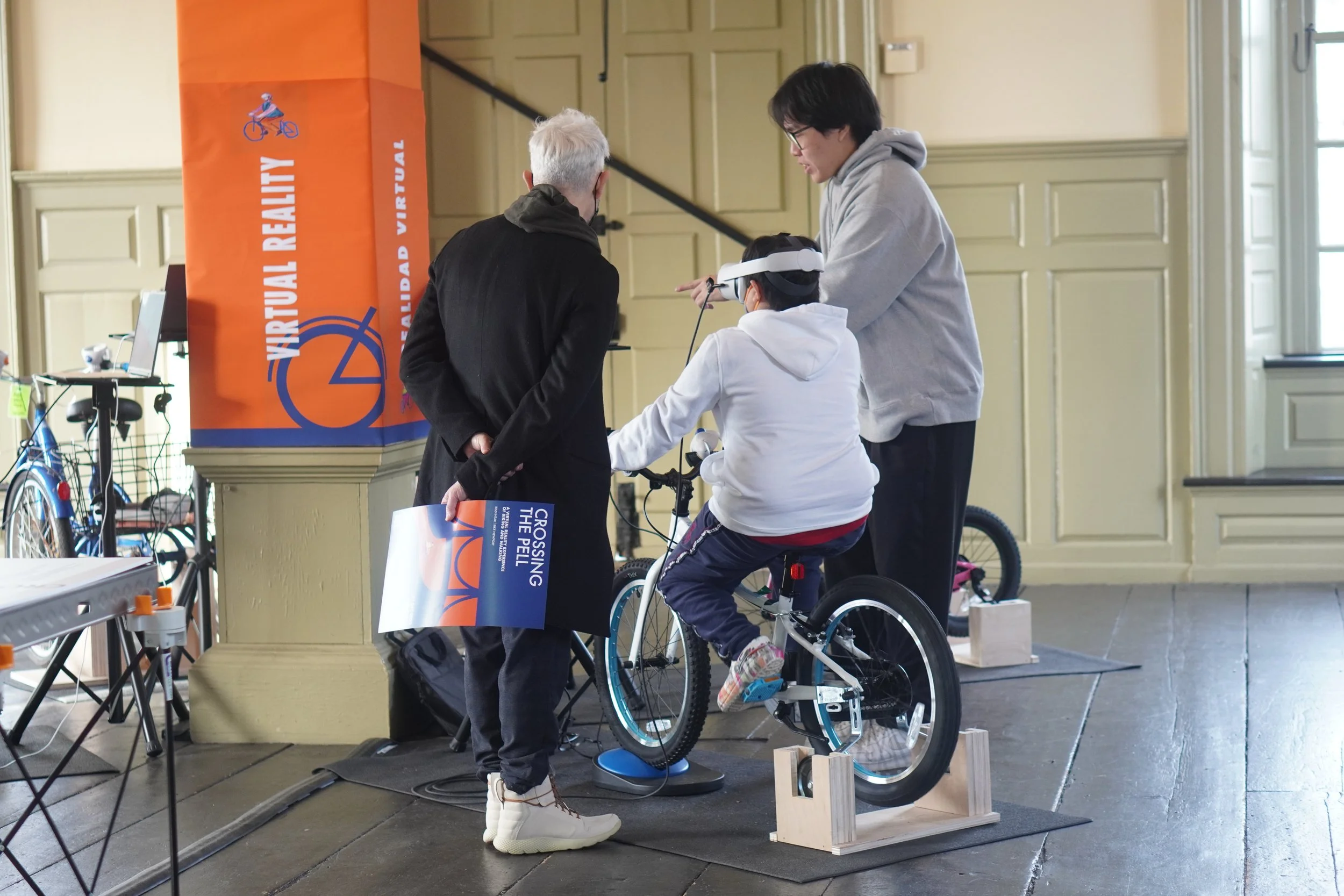
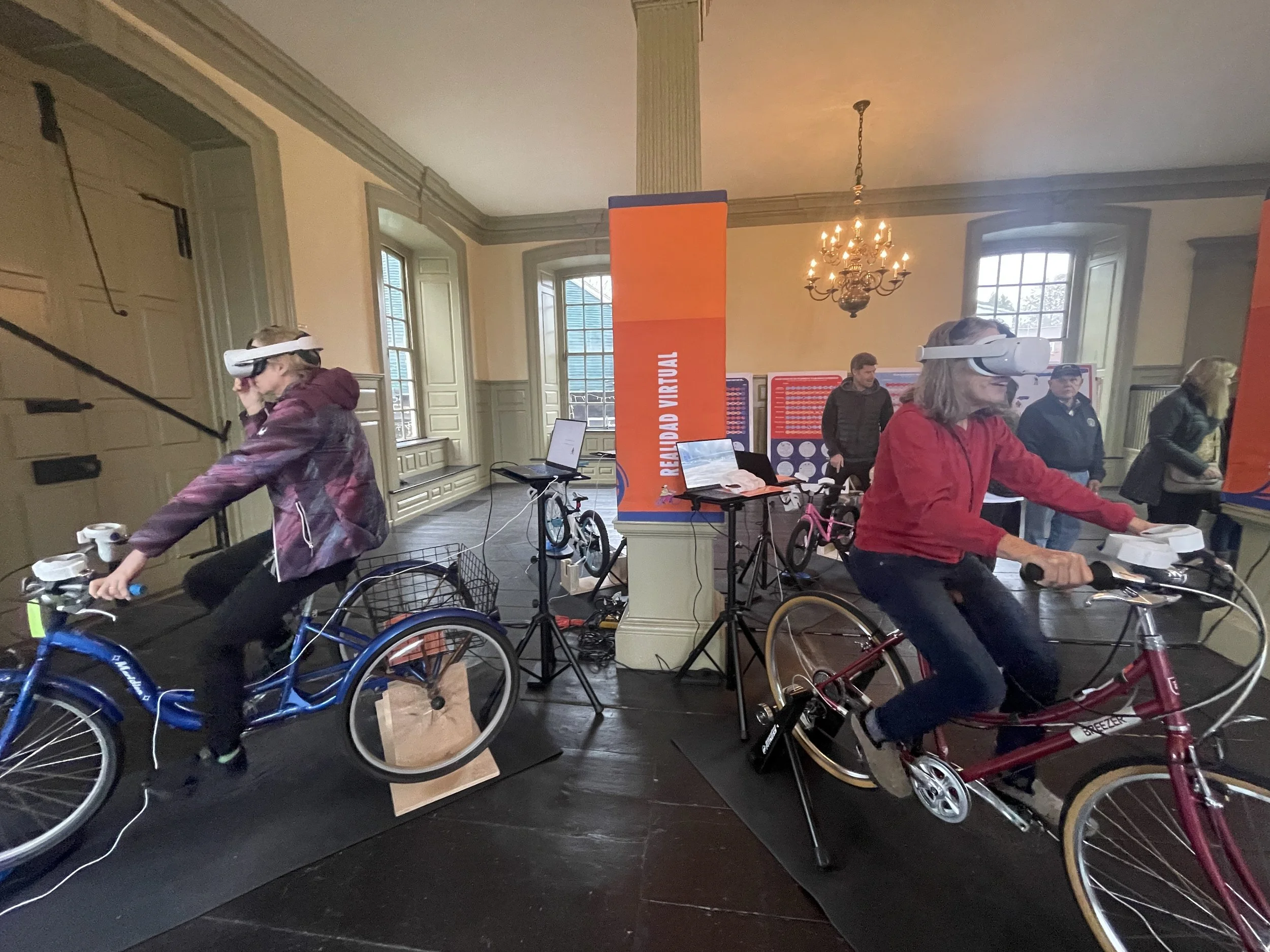




Feedback wall
The exhibition featured creative opportunities for visitors to offer feedback and share their own dreams and visions around the Pell. Comments, feedback and interviews confirmed that people are eager to enjoy such access and see those projects implemented in the real world.
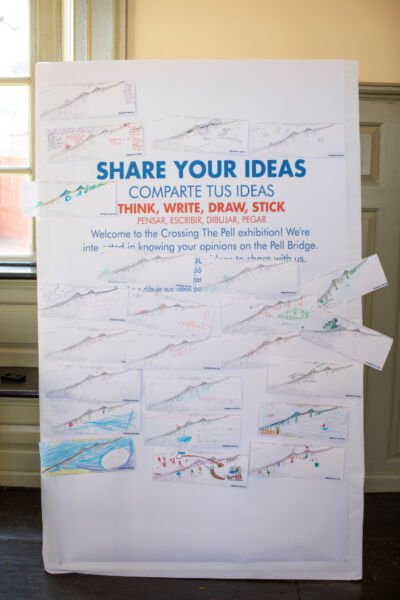
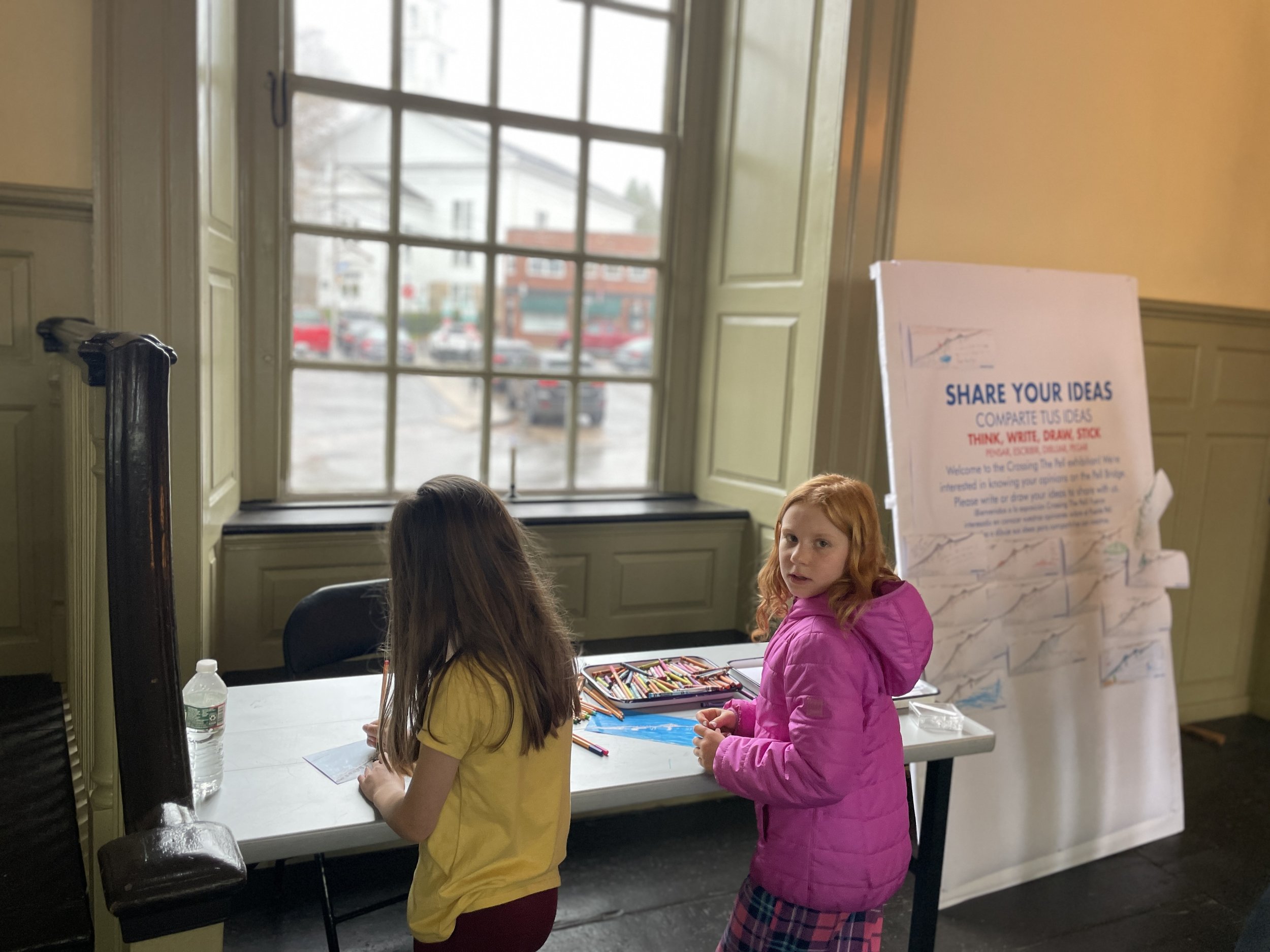


Sen. Sheldon Whitehouse addressing the press
Image Courtesy
Chuchu Chen MDES INTAR ENE 23,
Jo Sittenfeld MFA PH 08



